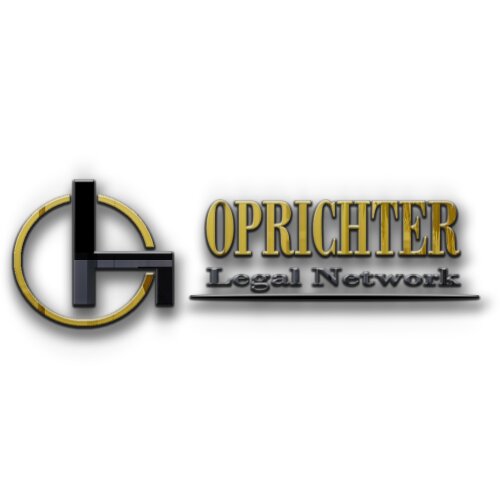Best Communications & Media Law Lawyers in Mampang Prapatan
Share your needs with us, get contacted by law firms.
Free. Takes 2 min.
List of the best lawyers in Mampang Prapatan, Indonesia
About Communications & Media Law in Mampang Prapatan, Indonesia
Communications & Media Law in Mampang Prapatan, Indonesia, is a specialized field that encompasses legal issues related to broadcasting, telecommunications, digital media, and information technology. This area of law regulates how information is disseminated to the public and ensures compliance with both national and international standards. In the vibrant district of Mampang Prapatan, which is located in South Jakarta, there is a rich blend of traditional and digital media activities, making it important for residents and businesses alike to understand and navigate these legal waters.
Why You May Need a Lawyer
Engaging a lawyer in Communications & Media Law can be crucial for various reasons. You might need legal advice if you're involved in content creation, broadcasting, or operating a digital platform to ensure compliance with local regulations and avoid censorship violations. Media businesses and telecommunications companies may require assistance with licensing, negotiation of contracts, or resolving disputes. Furthermore, if you are dealing with defamation, invasion of privacy, or intellectual property rights related to media content, a lawyer specializing in this field can provide vital guidance and representation.
Local Laws Overview
Mampang Prapatan, being a part of Jakarta, is subject to both local and national regulations influencing communications and media. The key legislative framework includes the Electronic Information and Transactions Law, the Broadcasting Law, and the Telecommunications Law. These laws focus on guidelines for broadcasting content, licensing requirements for media operations, protecting consumer data, and punishing cybercrimes. Jakarta regulations may further impose specific requirements for content-sharing, especially when involving public spaces or sensitive issues. Compliance with the Ministry of Communication and Information Technology (Kominfo) is also essential, as they are responsible for monitoring and enforcing these laws.
Frequently Asked Questions
What is the role of Kominfo in media regulation?
Kominfo oversees and enforces regulations related to broadcasting, telecommunications, and online media. They ensure content adheres to legal standards and manage licensing and compliance issues for media entities.
Do I need a license to start a broadcasting channel in Mampang Prapatan?
Yes, starting a broadcasting channel requires obtaining a license from the Indonesian Broadcasting Commission and adhering to specific operational guidelines stipulated by Kominfo.
What are the common legal issues faced by media companies in Indonesia?
Media companies often face issues related to licensing, censorship, defamation claims, intellectual property rights, and data protection regulations.
How does the law protect against defamation in media?
Indonesian law provides remedies for defamation, including civil lawsuits and, in some cases, criminal prosecution. The aggrieved party must prove that false information was published with harmful intent.
Can social media posts be subject to legal action?
Yes, social media posts can lead to legal actions, especially if they violate data privacy laws, are considered defamatory, or contravene national security regulations.
Is internet censorship prevalent in Indonesia?
Internet censorship is practiced in Indonesia to regulate the dissemination of inappropriate content, including violence, pornography, and hate speech, often under Kominfo’s directives.
How can one ensure compliance with data protection regulations?
Businesses and individuals should familiarize themselves with the General Data Protection Regulation and Indonesian privacy laws, ensuring data is collected and stored responsibly with user consent.
What should be done if a media outlet violates content regulations?
You should report the violation to Kominfo or the Indonesian Broadcasting Commission, which will investigate and potentially take legal actions against the outlet.
How are digital copyrights protected in Indonesia?
Digital copyrights are protected under the Copyright Law, which provides creators with exclusive rights to their works and legal avenues to pursue if infringements occur.
How do I resolve disputes with media contracts?
It’s advisable to consult a legal specialist in communications and media law to evaluate the contract and assist in negotiations or arbitration as needed.
Additional Resources
For further information, you can consult the Ministry of Communication and Information Technology (Kominfo), the Indonesian Broadcasting Commission (KPI), or local legal aid organizations that specialize in media law. Universities and law schools in Jakarta also offer valuable resources and may host seminars on communications and media law.
Next Steps
If you need legal assistance in Communications & Media Law, it’s important to first identify the specific issue at hand. Consider reaching out to a lawyer or law firm specializing in this field. Prepare any relevant documents or evidence relating to your case and schedule a consultation to discuss your situation. Creating a clear plan of action with your legal advisor will help you navigate the complexities of media law more effectively.
Lawzana helps you find the best lawyers and law firms in Mampang Prapatan through a curated and pre-screened list of qualified legal professionals. Our platform offers rankings and detailed profiles of attorneys and law firms, allowing you to compare based on practice areas, including Communications & Media Law, experience, and client feedback.
Each profile includes a description of the firm's areas of practice, client reviews, team members and partners, year of establishment, spoken languages, office locations, contact information, social media presence, and any published articles or resources. Most firms on our platform speak English and are experienced in both local and international legal matters.
Get a quote from top-rated law firms in Mampang Prapatan, Indonesia — quickly, securely, and without unnecessary hassle.
Disclaimer:
The information provided on this page is for general informational purposes only and does not constitute legal advice. While we strive to ensure the accuracy and relevance of the content, legal information may change over time, and interpretations of the law can vary. You should always consult with a qualified legal professional for advice specific to your situation.
We disclaim all liability for actions taken or not taken based on the content of this page. If you believe any information is incorrect or outdated, please contact us, and we will review and update it where appropriate.








